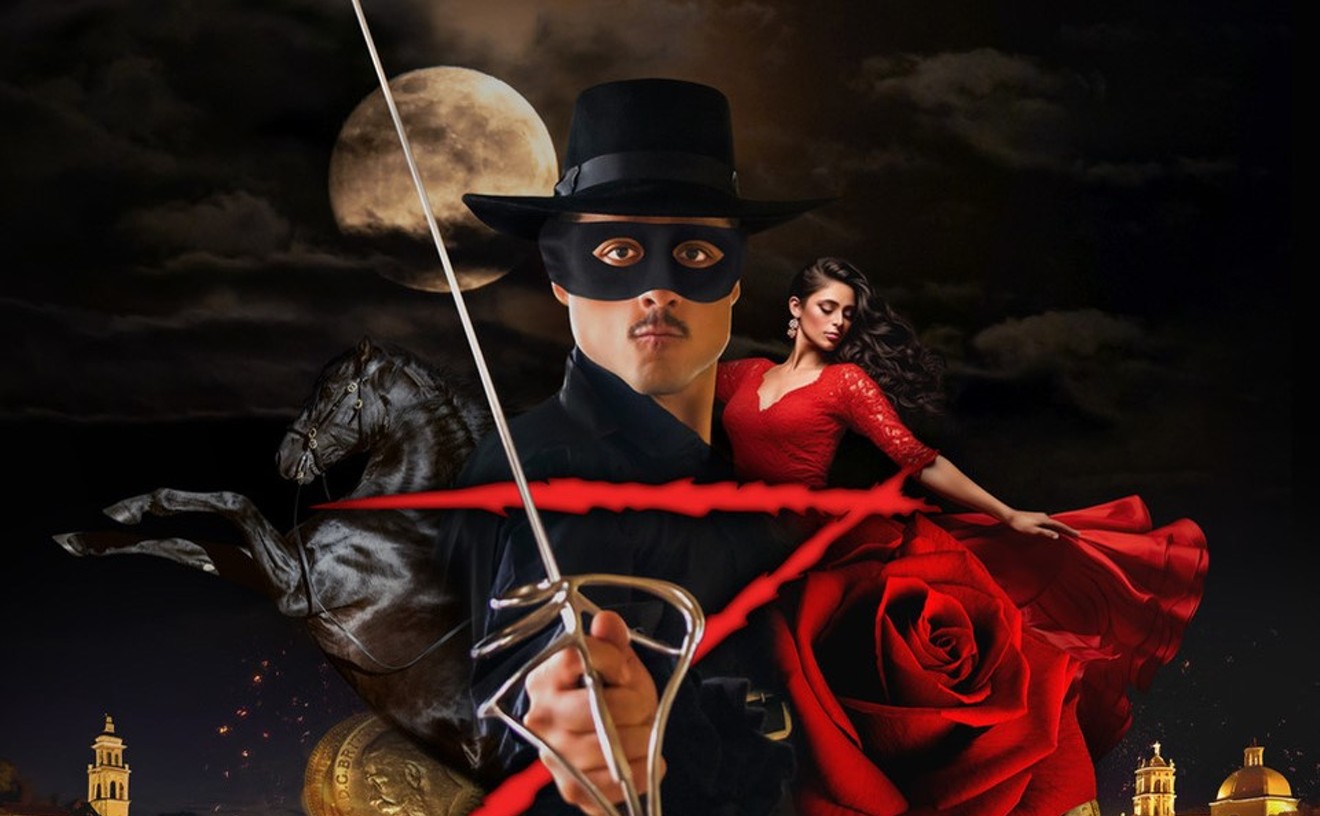Set in Atlanta in December 1939, Alfred Uhry's The Last Night of Ballyhoo straddles comedy and thoughtful drama; after about every fourth punch line, there's a reminder--by way of an anti-Semitic remark or teary speech--that there's a meaningful theme here. Arizona Theatre Company's sophisticated, well-wrought production of this Tony Award-winning play treats us to both extremes of theatergoing at the same time.
Beulah Levy and her daughter Lala live with Beulah's brother, Adolph; their sister-in-law, Reba; and Reba's daughter, Sunny, in a big house in Atlanta's wealthy German Jewish community. Lala, a twentyish loser who can't hold a job or finish a semester of college, has her sights set on Peachy, a New Orleans lad from a moneyed family who seems to genuinely like her.
She hopes he'll take her to Ballyhoo, an annual ball organized by the local Jewish social club. Beulah (known as "Boo"--everyone in this play has either a nickname or a name that sounds like one) is obsessed with Lala's attending Ballyhoo; she considers it her daughter's last chance to land a husband.
Wellesley student Sunny couldn't care less about Ballyhoo until she meets Joe, whose militant religion is the catalyst for most of what takes place in this story. While the family reconsiders its prejudice against its own kind, and its attitude about being the "right kind" of Jew, the young lovers duke it out over the importance of religion and the horrors of classism.
Uhry shoehorns this issue-oriented story into a warm family comedy that's pleasant and well-written but seems barely deserving of a "Best Play" Tony. Maybe I just expect more from the author of Driving Miss Daisy--more depth, anyway, in a play about anti-Semitism, or brighter laughs in a show with this many punch lines.
Uhry's story works best when he forgets about making us laugh and concentrates on the anti-Semitic Frietags. These Atlanta family members admit that they're Jews, but refuse to "be" Jewish, and speak contemptuously of American Jews who do otherwise. These are people who are purposely ignorant of their religious and ethnic heritage, for whom "Shabbat Shalom" is something overheard once at an obligatory Seder. Although the Holocaust is about to begin in Europe, the Frietags flippantly dismiss Hitler as the problem of European Jews.
Uhry wisely places the racial slurs in the mouths of his least lovable characters, though his comedic bits, tossed to the sweet-tempered Reba and the vivacious Lala, tend to rely on the worst Jewish stereotypes. Boo is a loud, mouthy nag who cares only about status and is obsessed with marrying off her daughter to a rich man; Lala bemoans her cousin's blond hair and blue eyes ("You don't have a single Jewish feature!") and dreams of being Scarlett O'Hara, the ultimate Southern Gentile princess. Meanwhile, Adolph, who at first comes off as just another lovable curmudgeon, struggles to come to terms with his own prejudices, while Joe wrestles with his love for a Jewish girl who denies her heritage. This is tough terrain for a comedy, and Uhry deserves credit for blending laughs and epithets with great aplomb.
The director is Ken Ruta, best known to local audiences as the former associate artistic director for ATC and director of last season's The Heiress. Ruta directs his fine cast with a sure hand, liberating them from the show's occasionally Neil Simonesque cuteness by turning up the volume on several of the nastier, anti-Jewish speeches.
Vicki Smith's scenic design is appropriately opulent and authentically late-1930s. And Lewis Brown's costume designs are perfect and, in the case of Lala's Scarlett O'Hara-inspired ball gown, perfectly hilarious.
Although I would have liked to have seen the story end about 10 minutes earlier--following the bittersweet but realistic scene where the girls return from Ballyhoo--Uhry's upbeat, Hollywood ending (in which everyone magically becomes kosher, among other things) works fine. The Last Night of Ballyhoo is a comedy with a big heart and a bigger message that goes for laughs without mortgaging its message.
The Last Night of Ballyhoo continues through Sunday, May 23, at the Herberger Theatre Center, 222 East Monroe.










